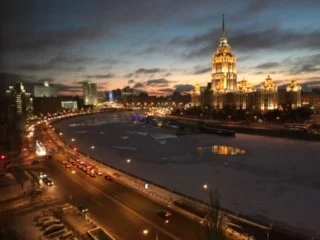The Western Balkans remain an important part of EU politics. It is important not only to strengthen the ties between the EU and the region, but also to support the cooperation within the region itself. The Berlin process has a lot to contribute to that cooperation. It was good to include also the economic dimension, but one should not think only about the necessary infrastructure.
Migration in and out of Africa
To speak about Africa and specifically about African migration is in danger of neglecting the many differences and the diversity of that huge continent and its – growing – population. Migration is not migration, there are many reasons and motivations for people, especially young people to decide to emigrate. Sometimes migration is based on individual decisions, sometimes it is a family decision to send the young abroad to gain remittances or to give the younger a chance he or she never would have at home. Some times migration decisions are taken in order to adapt to changed and detrimental environment, in other cases it has a transformative character. People want to shape their lives and improve their standard of living. In any case outside conditions are mostly intermingled with individual and family decisions. There are many factors and reasons, -young- people decide to take the risk of emigration.
Changemakers in the Eastern Neighbourhood
The International Institute for Peace, already since many years, is cooperating with the Center for International and European Studies of the Kadir Has University in Istanbul on its annualy International Neighbourhood Symposium. This year it took place in Odessa / Ukraine because Istanbul unfortunately became rather unattractive due to its internal political situation since the coup d'etat in 2016 and because of the rise of terrorist activities and attacks. Another reason, however, was also to foster cooperation with other organisations in the region, this time with Ukraine Analytika and Ukrainian Prism, two organisations dealing with Ukranian Foreign Policy.
Russia, Europe, and NATO: is There a Way Out of the Crisis?
There is no doubt about the tense relations between EU and Russia and even more between NATO and Russia. There are many reasons for the deterioration of the respective relations. Unfortunately; the possible peace and cooperation dividend after the collapse of the Eastern Block and the Soviet Union has not been consumed. Too much has it been seen outside Russia as a victory of the "West", it's values, its economic system and its military force. Francis Fukuyama expressed it most clearly: we arrived at "The End of History". Even in Russia many agreed with that interpretation of history. But things developed differently.
Russia in a New World Order? Lessons from the "Primakov Readings"
Invited to a conference in Moscow called "Primakov Readings" organized by the Russian Think Tank IMEMO, I had the opprtunity to listen to numerous speakers from Russia but also from countries stretching from Japan, China and India via Europe to the US. The meeting was held in honour of a former Russian foreign minister who was one of the architects of the new foreign policy of Russia after the breakdown of the Soviet Union. He combined an attitude of international cooperation and of a strong representation of Russian interests in its immediate neighborhood but also globally. He became famous when, on the way to the US, invited by Vice-president Al Gore, he ordered the plane to return to Moscow after he was informed that the US and its allies would start bombing Serbia. This decision is used today for making clear, that Russia cannot and will not accept unilateral decisions and the global dominance by the US.
Peace, Stability and Confidence through Economic Connectivity The case of the Western Balkan
Connectivity is a very wide term which covers several kinds of - economic - connections. They may be bilateral, concern a region with similar characteristics, the connection to other regions important for the economic development and even global connections. Very often this connectivity is overlapping and can be of mutual support. And this can be found in the Western Balkans.
The Middle East: Revitalized Fault Lines and Conflicts
The Mediterranean Sea was over many centuries characterized by movements of people and goods across the national borders of countries and across the sea. Some migratory movements were peaceful and contributed to trade and economic development. But many refugee flows were and are caused by conflicts, wars and occupations. Refugees tried to reach neighbouring countries like the vast majority of Palestinians or the "North" as especially today with many refugees from Syria and Iraq. The moving divisions and fault lines across the Mediterranean Sea and the different countries bordering that sea created again and again turmoil and chaos. But there were also periods of stability and peace.
Is Mass Migration from Africa Endangering Peace and Stability in Europe?
In the last two and half years I visited professionally three sub-Saharan countries, besides a brief visit to South Africa: Ghana, Tanzania and Uganda and now again privately Tanzania. In spite of the private character of this last visit I had time and interest to consider the special challenges for African countries, most of them also challenges for Europe. And as with the Middle East - maybe more indirectly - peace and stability in Africa is helping to maintain peace and stability in Europe.
Peace In the Middle East
Peace in Europe depends strongly on war and peace in the Middle East. This has never been more clear and visible than after the terrorist attacks in Paris this November. Irrespective and independently from the recent refugee stream from Iraq and Syria we have to recognize the new level of interdependence. The links with the regions "south" of the Mediterranean Sea became so strong that a separation via new borders and walls is impossible. Such demands of the populists are leading nowhere.







